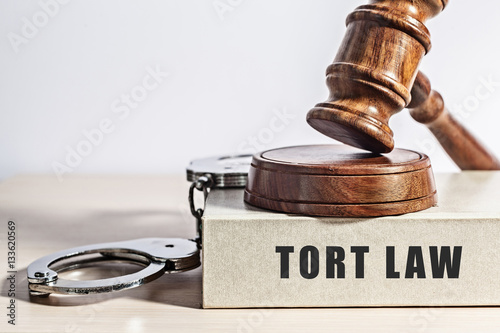Difference between Tort and Crime


|
Tort
|
Crime
|
|
Tort
occurs when the right available to all the persons in general (right in rem)
is violated.
|
Crime
occurs when the right available to all the persons in general (right in rem)
is violated and it also seriously affects the society.
|
|
Act
is comparatively less serious and affects only the person.
|
Act
is comparatively more serious and affects the person as well as the society.
|
|
Intention
is usually irrelevant. In most torts , However there are a few exception such
as Malicious prosecution, defamation etc.,
where
motive plays a part and are called intentional torts.
|
Intention
is the most important element in
establishing
criminal liability. A crime cannot happen without Mens Rea.
|
|
It
is a private wrong.
|
It
is a public wrong.
|
|
Since
it is a private wrong, the wronged individual himself must file a suit for damages.
|
Since
it is a public wrong, the suit is filed
by
the state
|
|
The
suit is for damages.
|
The
suit is for punishment.
|
|
Compromise
is possible between the parties. For example, a person who has been defamed,
can compromise with the defamer for a certain sum of money.
|
There
is no compromise for the punishment. For example, if a person is guilty of
murder, he cannot pay money and reduce his sentence.
|
|
Compounding
is possible.
|
Compounding
is generally not possible.
|
|
Justice
is met by compensating the victim for his injury and exemplary damages may
also be awarded to the victim. In Bhim Singh vs State of J K AIR 1986 SC 494-
the plaintiff was awarded exemplary damages for violation of his rights given
by art 21.
|
Justice
is met by punishing the aggressor
by
prison or fine. In some specific cases as
given
in IPC compensation may be given to
the
victim.
|
|
Law
of Torts is not codified. Tortious acts (with a few exceptions) are usually not
criminal acts.
|
Law
of crime is codified. Several criminal
acts
such as assault and battery are also grounds for tortious suit.
|
0 comments:
Post a Comment